Lawless
Roads
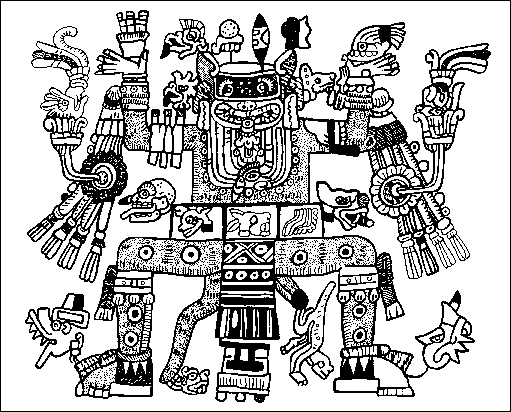
Albert Camus
Paul Theroux's best travel book by far --- The Great Railway Bazaar --- works because by the end of eight (or is it eighteen?) months of being on the road, he boards the Trans-Siberian Express for the final lap, and suddenly this calm journey-man turns as strange as the crazed and noisy alcoholic Russian peasants he's traveling with. At one desperate point, he joins in a for-real wrestling match with the train's dirty steward over food and a cup of vodka.
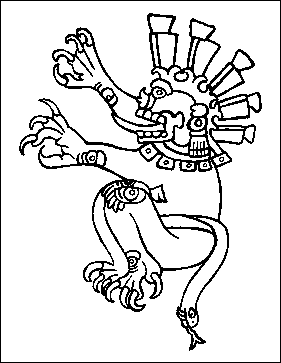 His achingly long journey has ended up making him crazy, so he bangs away at this stranger. He has become filled with horror at the bleak dark icy country he has created, through which they are passing --- darkness and snow and dust wheeling by the window for days on end, causing him to believe that it will never end. His own famished sense of loneliness born of so many unbelievable days and nights on the road turns him into a brawling serf.
His achingly long journey has ended up making him crazy, so he bangs away at this stranger. He has become filled with horror at the bleak dark icy country he has created, through which they are passing --- darkness and snow and dust wheeling by the window for days on end, causing him to believe that it will never end. His own famished sense of loneliness born of so many unbelievable days and nights on the road turns him into a brawling serf.
Good travel books not only tell us of the good and the bad of it, but let us in on the process of the writer changing, as all of us must change as we move from here to there. And that's what we have in The Lawless Roads, and it is a treasure: Graham Greene, a man of vision and wit, passing through the Mexico of sixty years ago, seeing it all through the eyes of a loyal Catholic, involved in the turmoil of a country trying to destroy its past and --- perhaps --- its soul.
Despite his other frailties, Greene was one who could see with the bemused distance so precious to the English visitor, and through his eyes we get to see the aftermath of a nation, still recovering (if it ever will) from a bloody ten-year civil war. He conveys the smell and taste of not only in the cities, but the rural and poor south. The Lawless Roads is ostensibly a travel book, but, being Greene, and being such a cynic coming out of the "western" world, it becomes much more.
In his journeys through Tabasco and Chiapas, for example, he finds himself with no clean clothes, no light nor electricity, no clean water, no suitable food, and, at times, not even a bed to sleep in. He find himself surrounded only by peasants, and he begins to think and act and feel like a peasant, worried only by the most immediate needs. Transportation in that country fifty years ago consisted of airplanes that flew erratically (or broke down, or arrived a month behind schedule, or lacked the amenities of a door or two functioning engines); or of boats that were hot and dirty and crammed with animals or people and the smell of diesel; or of buses jam-packed with Indians and pigs and chickens and smelled of gasoline; or --- for Greene, at one especially hideous stage, from Salto de Agua to Yajalon --- four painful days by mule-back, on a wooden saddle, though a countryside that smelled of only dust and dung.
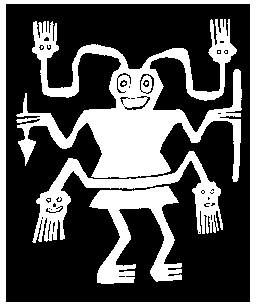 We travelers to the nether reaches of the world want to tell all, after we're safely home, how painful our journey was, how much we suffered, the indignities we put up with --- and Greene is no exception. But, with an artist's sense of progression, he slowly ups the agony-ante --- from a noisy train, to a tiny, hot boat, to a rump-busting mule, and the final stage, where, desperately sick with diarrhea, in the middle of nowhere, in a jam-packed Mexican bus --- he knows he is going to die, and he just wants to get it over with. As with all travel horror stories, the very misery creates a point of ecstasy, in this case, the memory of an earlier ecstasy:
We travelers to the nether reaches of the world want to tell all, after we're safely home, how painful our journey was, how much we suffered, the indignities we put up with --- and Greene is no exception. But, with an artist's sense of progression, he slowly ups the agony-ante --- from a noisy train, to a tiny, hot boat, to a rump-busting mule, and the final stage, where, desperately sick with diarrhea, in the middle of nowhere, in a jam-packed Mexican bus --- he knows he is going to die, and he just wants to get it over with. As with all travel horror stories, the very misery creates a point of ecstasy, in this case, the memory of an earlier ecstasy:
...weariness shot through occasionally with flashes --- not exactly of beauty, but of consciousness, consciousness of something simple and strange and uncomplicated, a way of life we have hopelessly lost but can never quite forget. There was a moment at a little brown pebbly river when the guide took a bowl from his saddle-bag and filled it with water from the steam and made himself a kind of gruel with a ball of corn --- the mules drank and I stood on a stone and washed my face and hands and the shadow played on the stream, and it was like peace and natural happiness...
Being Greene, and being early 20th Century English, he carries a touch of colonialism in his heart --- an ill-disguised dislike of other cultures, those not as advanced as he sees his own. This creates, in The Lawless Roads, a surprising prejudice:
How one begins to hate these people --- the intense slowness of that monolithic black-clothed old woman with the grey straggly hair...the hideous inexpressiveness of brown eyes...They just sit about.
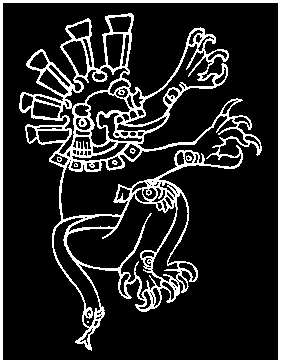 Part of the horror of Greene's trip is self-induced. Like the usual arrogant foreigner, Greene knows painfully little Spanish, and is totally unwilling to learn enough to make his journey easier. Like Americans, French, Germans and most northern Europeans --- he seems to feel that Spanish is a bastard language, one that doesn't deserve the time and trouble of his study. It is not enough that Greene is a Catholic in a place where they are trying to destroy the church, it is not enough that he is English, in a place where English is not spoken, it is not enough that he has this prejudice against the natives with "hideous inexpressiveness of brown eyes;" no --- he must go into a world, a very "uncivilized world," and expect to muddle through just because he is a Britisher.
Part of the horror of Greene's trip is self-induced. Like the usual arrogant foreigner, Greene knows painfully little Spanish, and is totally unwilling to learn enough to make his journey easier. Like Americans, French, Germans and most northern Europeans --- he seems to feel that Spanish is a bastard language, one that doesn't deserve the time and trouble of his study. It is not enough that Greene is a Catholic in a place where they are trying to destroy the church, it is not enough that he is English, in a place where English is not spoken, it is not enough that he has this prejudice against the natives with "hideous inexpressiveness of brown eyes;" no --- he must go into a world, a very "uncivilized world," and expect to muddle through just because he is a Britisher.
In other words, he is unwilling to honor the culture of the non-English world; he is ever the colonial in a non-colonial world. The only information available to him (outside of touch, vision, smell, and sickness), comes through those few expatriates he meets, or natives who speak English language well enough to tell him what is going on around him. He is thus deaf and dumb --- and, as all of us come be when we are rendered deaf and dumb, turns the most innocent scenes and people into scenes of paranoiac horror. Because he travelled so blindly, and had to depend on his own schizophrenic vision --- as with Van Gogh, the skewed vision produced his most influential and most gripping work.
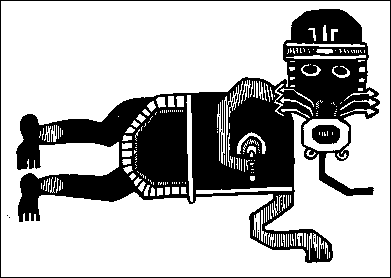 The Lawless Roads lets us in on the process of Greene's creative fire, for most of the characters that turn up in The Power and the Glory appear here, ever so briefly: The whiskey priest. The sweating, complaining dentist. The "mestizo" with his two yellow fangs. The authoritarian young soldier. The fat priest. They are all there waiting for Greene to pull them together in his olla podrida, a tale of the paradox of an ancient, hide-bound religion at war for the heart of a country, with a state immersed in corruption and reeking poverty.
The Lawless Roads lets us in on the process of Greene's creative fire, for most of the characters that turn up in The Power and the Glory appear here, ever so briefly: The whiskey priest. The sweating, complaining dentist. The "mestizo" with his two yellow fangs. The authoritarian young soldier. The fat priest. They are all there waiting for Greene to pull them together in his olla podrida, a tale of the paradox of an ancient, hide-bound religion at war for the heart of a country, with a state immersed in corruption and reeking poverty.
The glory of The Power and the Glory is that Greene's novelistic instincts protected him from his appalling prejudices. The "mestizo" --- the mix of Indian and Spanish --- comes across to us as a superbly evil character, with yellowed fangs turning him bestial and crafty. The "hero" of the novel is, surprisingly, a shaky boozer --- a "whiskey priest" --- who goes to his death miserably afraid (who can ever forget the picture of him being led before the shooting squad, his knees giving way so he had to be half-dragged, half-carried to his death.) And the counterpoise to the priest, with his nervous giggle: the lieutenant, a man who with his impressive logic, makes one almost believe in this revolution over the fatness of the pre-war Church. Indeed, Greene's description of the priests of the non-revolutionary parts of Mexico tells of fat comfort, ease and acceptance, which makes for a loss of holy magic. The tension of accepted religious vs. the religion of martyrdom makes the tension of The Power and the Glory, and it is a tribute to the separation of art and belief that could cause Pope John Paul to describe the novel as one of his favorite books.
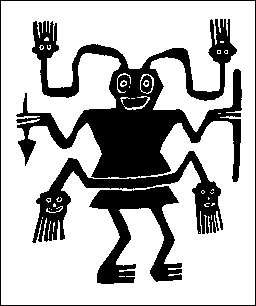 The Lawless Roads is filled not only with a traveler's woe, but a rich tapestry of lively characterizations, as well. At one point, after making a long journey by mule to the ruins at Palenque (then almost totally inaccessible, and in 1938, in no way set up for tourism), Greene says,
The Lawless Roads is filled not only with a traveler's woe, but a rich tapestry of lively characterizations, as well. At one point, after making a long journey by mule to the ruins at Palenque (then almost totally inaccessible, and in 1938, in no way set up for tourism), Greene says,
I haven't been to Chichen Itzá, but judging from photographs of the Yucatán remains they are immeasurably more impressive than those of Palenque, though, I suppose, if you like wild nature, the setting of Palenque is a finer one...so age-worn they have a lichenous shape and look more vegetable than mineral...No work is in progress, and you can see them on the point of being swallowed again by the forest; they have looked out for a minute, old wrinkled faces, and will soon withdraw.
 The ultimate hero of The Lawless Roads is an improbable one. He appears at the very end, and, we feel, as Theroux's fatigue at being on the road for so long turns him into a violent, Russian peasant, Greene's long, awful journey brings him, at last, to a moment of openness and generosity that causes him to write winningly of a German, fresh out of prison, being sent back to Nazi Germany, where he is sure to be executed; a man who, for Greene, creates love in all those around him, who has the gentleness of a Buddha. His name is Kruger. The author refers to him as an "escapist." At one point, he says to Greene, with a fine unconscious insight into Greene's mental and physical busy-ness:
The ultimate hero of The Lawless Roads is an improbable one. He appears at the very end, and, we feel, as Theroux's fatigue at being on the road for so long turns him into a violent, Russian peasant, Greene's long, awful journey brings him, at last, to a moment of openness and generosity that causes him to write winningly of a German, fresh out of prison, being sent back to Nazi Germany, where he is sure to be executed; a man who, for Greene, creates love in all those around him, who has the gentleness of a Buddha. His name is Kruger. The author refers to him as an "escapist." At one point, he says to Greene, with a fine unconscious insight into Greene's mental and physical busy-ness:
"You worry too much. You don't want to worry. You just want to contemplate."
"What?" I said. "My navel?"
"No, no," he said. "Just think of nothing. Be calm."
Kruger invites Greene to come with him --- assuming, somehow, that he escapes Germany, survives, somehow, to run away to the Amazon:
"The Indians, they eat spiders. A great delicacy," and you knew he was away in a land where a man could live on nothing, without violence or hate, where what you planted always grew and the water was good to drink and the climate was kind...and there was nothing to worry about any more for ever."
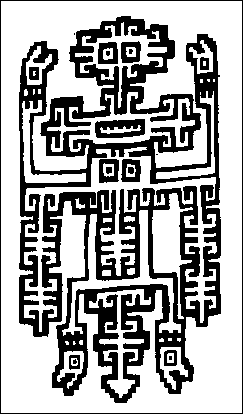 The villains here, are, obviously, those who are destroying the state religion and murdering the priests. But, even more, to Greene, all of Mexico becomes the villain. The ugliness, the dirt, the stink, the water that makes one sick, the beggars, the dogs, the appalling lack of hope and life, and, most of all, the great masses of dark and silent Indians. The Power & The Glory, succeeds, we realize, because of Greene's loathing --- the loathing for a place he doesn't understand, will never understand --- a place of strange people speaking in strange tongues with strange thoughts, living a very strange peace, a peace that no gringo (least of all Graham Greene) will ever understand. And because he doesn't understand Mexico and Mexicans, he gives himself a blank canvas on which to write a potent tale of death and redemption.
The villains here, are, obviously, those who are destroying the state religion and murdering the priests. But, even more, to Greene, all of Mexico becomes the villain. The ugliness, the dirt, the stink, the water that makes one sick, the beggars, the dogs, the appalling lack of hope and life, and, most of all, the great masses of dark and silent Indians. The Power & The Glory, succeeds, we realize, because of Greene's loathing --- the loathing for a place he doesn't understand, will never understand --- a place of strange people speaking in strange tongues with strange thoughts, living a very strange peace, a peace that no gringo (least of all Graham Greene) will ever understand. And because he doesn't understand Mexico and Mexicans, he gives himself a blank canvas on which to write a potent tale of death and redemption.